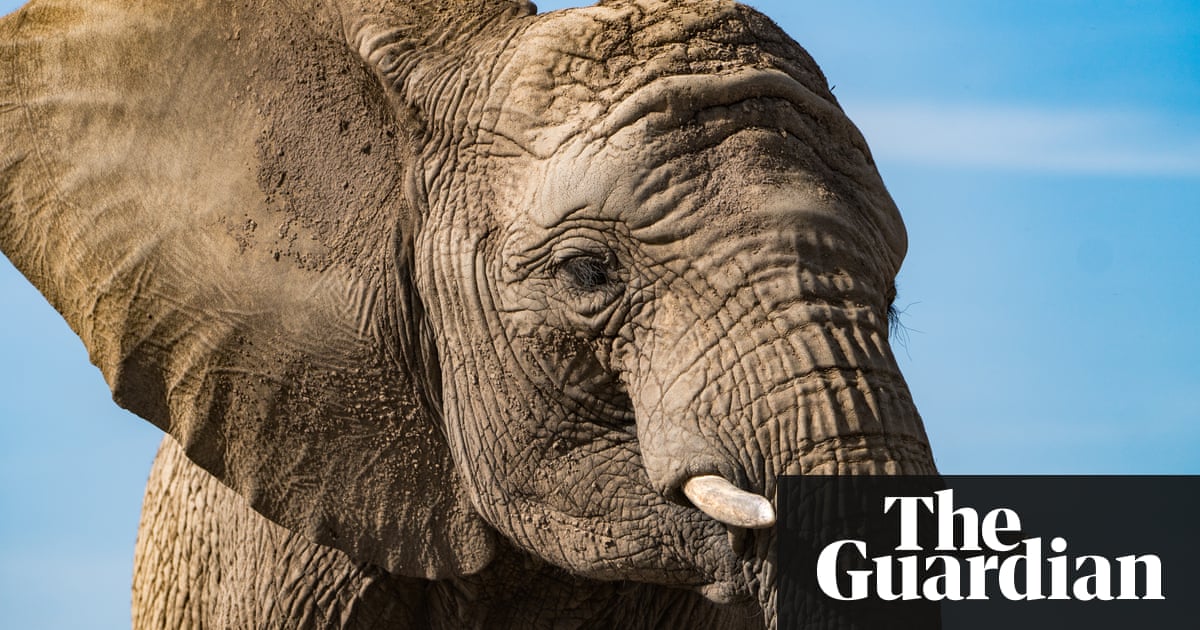
A UK ban on ivory sales, which the government claims will be the toughest in Europe and one of the strictest in the world, is to be introduced after the proposals were overwhelmingly backed in a public consultation.
The ban makes exemptions only for musical instruments containing a small percentage of ivory, some antiques, and museum objects.
The environment secretary, Michael Gove, described the trade in ivory as “abhorrent” and said: “Ivory should never be seen as a commodity for financial gain or a status symbol, so we will introduce one of the world’s toughest bans on ivory sales to protect elephants for future generations.”
No date has yet been set for the introduction of the legislation. A spokeswoman for the Department for Environment, Food and Rural Affairs (Defra) said it would be done “when parliamentary time allows”.
A study last summer of records under the convention on international trade in endangered species (Cites ) suggested that between 2010 and 2015 Britain was the largest exporter of legal ivory in the world.
The number of elephants in the wild is believed to have declined by almost a third in the past decade, and an estimated 20,000 a year are killed to meet the global demand for ivory.
Some campaigners have been seeking a blanket ban, but Charlie Mayhew, the chief executive of the African wildlife charity Tusk Trust, described the exemptions as pragmatic. “The ban will ensure there is no value for modern-day ivory and the tusks of recently poached elephants cannot enter the UK market,” he said.
“We welcome the fact that ministers are sending such a clear message to the world that the illegal wildlife trade will not be tolerated and every effort will be made to halt the shocking decline in Africa’s elephant population in recent years.”
Tanya Steele, the chief executive of WWF-UK, said the ban would make Britain a global leader. “Around 55 African elephants are killed for their ivory a day, their tusks turned into carvings and trinkets,” she said. “But if we want to stop the poaching of this majestic animal, we need global action. We hope the UK will continue to press countries where the biggest ivory markets are, most of which are in Asia, to shut down their trade too.”
There were more than 70,000 responses to the consultation, 88% in favour of the proposals, making it the largest consultation exercise carried out by Defra.
The present law, in common with those of many other countries, bans the sale of raw elephant ivory of any age but allows trade in ivory objects worked before 1947 without any certificate – causing inevitable problems over the date of manufacture – and post-1947 objects with a certificate.
The new law will ban the trade in most ivory objects of any age. The exemptions will be for musical instruments made before 1975 with an ivory content of less than 20%, and objects made before 1947 with less than 10% ivory. There will be a further exemption for antiques at least 100 years old, deemed “the rarest and most important objects of their type”, with the judgment made by specialists including museums.
In addition, portrait miniatures on thin slivers of ivory at least 100 years old will be exempt. There will also be an exemption for accredited museums in the UK and internationally.
Campaigners say the illegal trade in banned wildlife is estimated to be worth up to £17bn a year, and the legal international trade in ivory has exploited varying regulations in different jurisdictions. China permits trade in “relics” without a specified age, and the US exempts objects over a century old, as well as those with less than 50% ivory.
Matthew Hatchwell, the director of conservation at the Zoological Society of London, said: “Legal domestic ivory markets are intrinsically linked to the illegal ivory trade that is driving the current poaching crisis. With almost 20,000 elephants poached in the last year, it is vital that countries take significant steps such as those outlined by the UK government today to close their markets and help make the trade in ivory a thing of the past.
“No one in the UK today would dream of wearing a tiger-skin coat. Thanks to this move, in a few years’ time we believe the same will be true for the trade in ivory.”
from Environment | The Guardian https://ift.tt/2Jei1Xh
via IFTTT

No comments:
Post a Comment